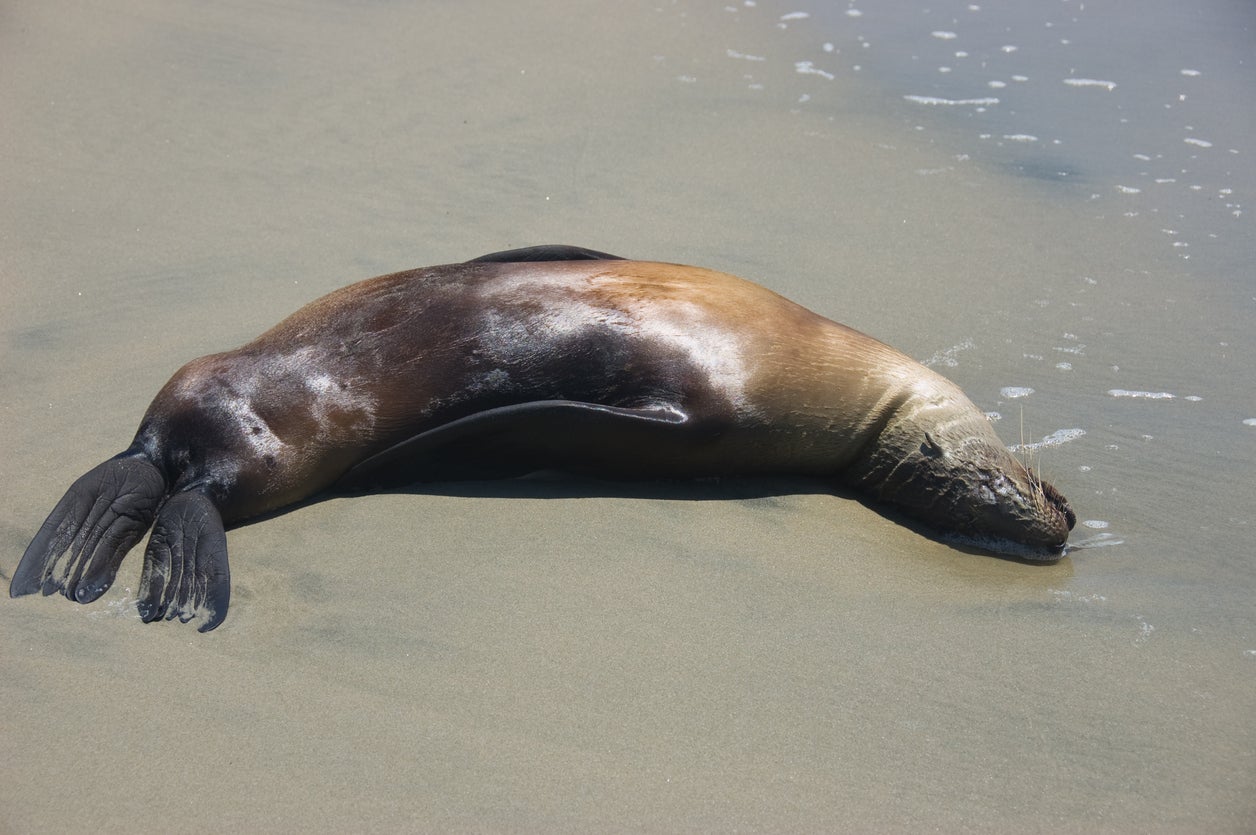UK seal population under threat for salmon-farming industry
Campaigners believe more needs to be done

Salmon is, in the eyes of many, one of the finest foods in the world.
However, there’s a cruel side to the salmon-farming industry that many people aren’t aware of: seals are being shot to protect the fish.
Many of the independently-run farms use licensed marksmen to kill both common and rarer grey seals, shooting dozens every year, The Times reports.
The seals pose a threat to the caged salmon, but the UK seal population is under threat itself.
Currently estimated to be around 37,000, the common seal population is suffering from a fatal disease called phocine distemper.
And the salmon-farming industry is contributing to the decline of seal numbers around Scotland.
Marine Harvest Scotland, which reportedly supplies Waitrose and Sainsbury’s, has admitted it killed 21 seals last year. The figures were released by the Scottish government.
Steve Bracken, business support manager of Marine Harvest Scotland, told The Independent: “In 2016, Marine Harvest Scotland shot 21 seals. While we’re disappointed and regret any increase in the numbers we are pleased there has been a substantial reduction in numbers for some years now.”
Previously the company was killing more than 100 a year. Bracken says they are taking measures to save more seals and ultimately want to reduce the number to zero:
“As founder members of the Salmon Aquaculture and Seals Working Group we are working hard to reduce the numbers through improved procedures and investment in new technologies.
“Our approach includes improving the tension on nets as well as investing in stronger nets and various seal scaring devices.”
The company has likened their approach to how farmers kill foxes that attack their livestock.
Marine Harvest is just one company though. Scottish Sea Farms, which reportedly supplies Marks & Spencer, has also been named by the Seal Protection Action Group (SPAG).
A spokesperson for M&S told The Independent: “Neither we nor our salmon farmers have any wish to see seals or any other sea life harmed. We have led the industry on this issue and invested time and money to avoid this happening.
“The RSPCA supports our approach, and is equally concerned about the welfare of farmed salmon as well as animals such as seals.”
Many of the supermarkets who pride themselves on their ethical credentials have found themselves in hot water for selling salmon from these farms.
A spokesperson for Waitrose told The Independent:
“Waitrose requires all its farmed salmon suppliers to take rigorous non-lethal measures to deter predators, including seals. These measures focus on physical exclusion, including the proper use of acoustic devices, tensioned and weighted nets.
“Having said that, predators sometimes get through all the non-lethal barriers our suppliers can put in place. This can result in vicious attacks on the fish, causing serious welfare problems. Only at this point, and in a very small number of cases, are other methods of predator control considered and we are working with our suppliers to minimise this.”
But campaigners believe more needs to be done.
“With over 1,500 reported shot in the past six years alone, our seals are paying a cruel price for Scottish salmon,” said Andy Ottaway of SPAG.
“There are fewer grey seals than African Elephants in the world, but because they are concentrated in UK waters, people believe that they are thriving.
“I don’t think that the public knows that seals are being shot just so that they can eat salmon.”
With awareness being raised, it’s hoped that more effort will be made to end the practice.
Scott Landsburgh, of the Scottish Salmon Producers’ Organisation, said: “The industry is permitted to shoot seals but it is our ambition to develop enough techniques throughout the industry to reduce the number of seals shot to zero.”
The Independent has contacted Scottish Sea Farms and Sainsbury’s for comment but is yet to receive a response.
Join our commenting forum
Join thought-provoking conversations, follow other Independent readers and see their replies
0Comments